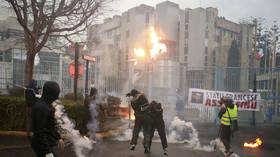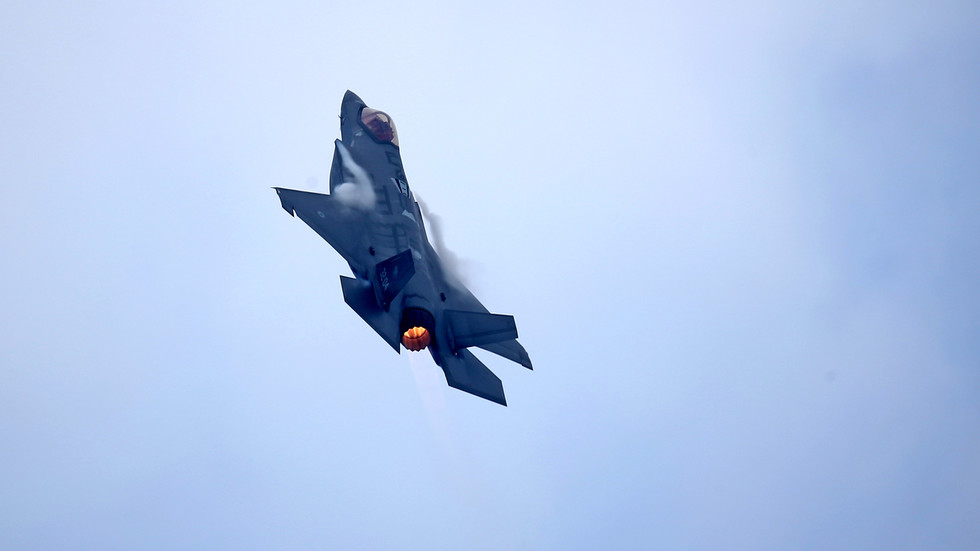Én tudom mi a megoldás erre: hidrogén-gazdaság: hidrogénezett növényi zsír!!!! Vagy napelem/szélerőmű.Németorszàgban az Aldi figyelmeztetett, hogy étolajból árúhiány jelentkezhet az ukràn helyzet miatt. Minden esetre csak háztartàsi mennyiségeket adnak ki. ( Die Welt)
Kivàncsi vagyok, mikor kezdik el megvitatni, hogy hogyan kerülhetett Europa fûggőségbe az oroszoktól, ukrànoktól az étolajok terèn is.
[BIZTPOL] Nyugat-Európa és Észak-Európa (Európai Unió)
- Téma indítója Tcat
- Indítva
-
Ha nem vagy kibékülve az alapértelmezettnek beállított sötét sablonnal, akkor a korábbi ígéretnek megfelelően bármikor átválthatsz a korábbi világos színekkel dolgozó kinézetre.
Ehhez görgess a lap aljára és a baloldalon keresd a HTKA Dark feliratú gombot. Kattints rá, majd a megnyíló ablakban válaszd a HTKA Light lehetőséget. Választásod a böngésződ elmenti cookie-ba, így amikor legközelebb érkezel ezt a műveletsort nem kell megismételned. -
Az elmúlt időszak tapasztalatai alapján házirendet kapott a topic.
Ezen témában - a fórumon rendhagyó módon - az oldal üzemeltetője saját álláspontja, meggyőződése alapján nem enged bizonyos véleményeket, mivel meglátása szerint az káros a járványhelyzet enyhítését célzó törekvésekre.
Kérünk, hogy a vírus veszélyességét kétségbe vonó, oltásellenes véleményed más platformon fejtsd ki. Nálunk ennek nincs helye. Az ilyen hozzászólásokért 1 alkalommal figyelmeztetés jár, majd folytatása esetén a témáról letiltás. Arra is kérünk, hogy a fórum más témáiba ne vigyétek át, mert azért viszont már a fórum egészéről letiltás járhat hosszabb-rövidebb időre.
-
Az elmúlt időszak tapasztalatai alapján frissített házirendet kapott a topic.
--- VÁLTOZÁS A MODERÁLÁSBAN ---
A források, hírek preferáltak. Azoknak, akik veszik a fáradságot és összegyűjtik ezeket a főként harcokkal, a háború jelenlegi állásával és haditechnika szempontjából érdekes híreket, (mindegy milyen oldali) forrásokkal alátámasztják és bonuszként legalább a címet egy google fordítóba berakják, azoknak ismételten köszönjük az áldozatos munkáját és további kitartást kívánunk nekik!
Ami nem a topik témájába vág vagy akár csak erősebb hangnemben is kerül megfogalmazásra, az valamilyen formában szankcionálva lesz
Minden olyan hozzászólásért ami nem hír, vagy szorosan a konfliktushoz kapcsolódó vélemény / elemzés azért instant 3 nap topic letiltás jár. Aki pedig ezzel trükközne és folytatná másik topicban annak 2 hónap fórum ban a jussa.
You are using an out of date browser. It may not display this or other websites correctly.
You should upgrade or use an alternative browser.
You should upgrade or use an alternative browser.
Betankoltam husz litert az utobbi egy hetben, azzal el leszunk kb karacsonyig.A Heute c osztrák metróújság kapcsolódó cikke:
https://www.heute.at/s/hier-drohen-jetzt-engpaesse-in-unseren-supermaerkten-100195800
Hiány van az étolaj mellett zöldség- és gyümölcskonzervből, kávéból, tejből, csirkehúsból.
Ezek oka csak részben az Ukrajnából kieső áruk, az osztrákok elkezdtek otthon felhalmozni. A csirkehús pedig azért hiányzik, mert a gyorséttermek eddig Ukrajnából szerezték be a csirkehúst, most kénytelenek ők is a hazai piacról venni, ezért nem jut a boltokba.
Ezen kívül a bébiételekből, konzervekből, pelenkákból maguk a gyártók csatornáztak át a menekültek ellátásával foglalkozó szervezetek felé, ezért azokból sincs elég a boltokban.

Az emberiseg meg ujra felfedezi a zsirt.
Ð ÐÑалии пÑопадаÑÑ Ð¼Ð°ÐºÐ°ÑонÑ, в ÐаÑвии - ÑолÑ. Ðак ÐвÑÐ¾Ð¿Ñ Ð½Ð°ÐºÑÑÐ²Ð°ÐµÑ Ð¿ÑодÑкÑовÑй деÑиÑÐ¸Ñ Ð¸Ð·-за Ð²Ð¾Ð¹Ð½Ñ Ð² УкÑаине
Ð ÐвÑопе поÑле наÑала Ð²Ð¾Ð¹Ð½Ñ Ð² УкÑаине Ñ Ð¿Ð¾Ð»Ð¾Ðº магазинов наÑали пÑопадаÑÑ Ð½ÐµÐºÐ¾ÑоÑÑе пÑодÑкÑÑ. РнекоÑоÑÑÑ Ð³Ð¾ÑÐ¾Ð´Ð°Ñ ÐÑалии и ÐÑпании - пеÑебои Ñ Ð¿Ð¾ÑÑавками импоÑÑиÑÑемого из УкÑаинÑ...
Étolajból volt már kisebb hiány, amikor a biodízel gyártók felvásárolták a napraforgó és a repcemagot...Németorszàgban az Aldi figyelmeztetett, hogy étolajból árúhiány jelentkezhet az ukràn helyzet miatt. Minden esetre csak háztartàsi mennyiségeket adnak ki. ( Die Welt)



Na akkor készülhet a kormány, hogy ezek árát is rögzítse, jönnek a sógorok pelenkát felvásárolni, meg viszik a hatósági áras csirkehúst is.A Heute c osztrák metróújság kapcsolódó cikke:
https://www.heute.at/s/hier-drohen-jetzt-engpaesse-in-unseren-supermaerkten-100195800
Hiány van az étolaj mellett zöldség- és gyümölcskonzervből, kávéból, tejből, csirkehúsból.
Ezek oka csak részben az Ukrajnából kieső áruk, az osztrákok elkezdtek otthon felhalmozni. A csirkehús pedig azért hiányzik, mert a gyorséttermek eddig Ukrajnából szerezték be a csirkehúst, most kénytelenek ők is a hazai piacról venni, ezért nem jut a boltokba.
Ezen kívül a bébiételekből, konzervekből, pelenkákból maguk a gyártók csatornáztak át a menekültek ellátásával foglalkozó szervezetek felé, ezért azokból sincs elég a boltokban.
Ezek Abmramsek
nem tudni, merre és hova, de nem Leóknak tűnnek
zavargások korzikán

Protesters throw Molotov cocktails in Bastia, Corsica, France, March 13, 2022 © AFP / Pascal Pochard-Casabianca/AFP
Speaking to Corsican newspaper Corse Matin on Tuesday, French Interior Minister Gerald Darmanin said the French government was prepared to discuss autonomy for the island province, adding, however, that the restoration of public order was a prerequisite for that. Darmanin’s statement came amid mass protests over the brutal beating of a pro-independence activist in a French prison.
In the exclusive interview, the official revealed that the “discussion around the institutional question” would be “unprecedented.” According to Darmanin, the dialogue will be “initiated during the second term of the President of the Republic,” that is, if Emmanuel Macron is re-elected in April.
The minister revealed that the French state was “ready to go as far as autonomy.” Yet, the question still remains what Corsica’s status would look like, Darmanin noted.
France’s interior minister, who was put in charge of Corsica affairs earlier this month, is the first government official to float the idea of granting the province autonomy – something local nationalists have been demanding for decades.
Darmanin is expected to arrive in the restive province on Wednesday, meeting with local officials and visiting a police station attacked by demonstrators last Friday.
 READ MORE: Macron confirms run for second term
READ MORE: Macron confirms run for second term
For two weeks now, people have been taking to the streets of Corsican cities and towns, with protests often descending into clashes with police, which have left dozens of people injured on both sides. According to local police, 44 officers sustained injuries on Sunday alone.
Over the weekend, hundreds of masked youths pelted law enforcement personnel with Molotov cocktails and rocks, while police responded with tear gas and water cannons.
The unrest was sparked by the brutal beating of a prominent pro-independence activist in a French prison on March 2, which left him in a coma. Yvan Colonna, 61, who is serving a life sentence for the 1998 assassination of Corsica’s prefect, Claude Érignac, was reportedly attacked by a fellow inmate convicted on terrorist-related charges.
Responding to claims made by some Corsican nationalists that the French state was behind the attack on Colonna, Darmanin insisted that that was not the case, adding that the allegations were “insulting and profoundly contrary to the truth.”
According to France’s interior minister, the French authorities suspect that the beating could have been religiously motivated, and possibly related to blasphemy.
The beating of Colonna reignited calls for all Corsican prisoners to be moved back to their homeland where they can serve their sentences in local prisons. Up until recently, Paris refused to consider this; though, amid the escalation in the province, Prime Minister Jean Castex made an exception for the beaten inmate and two others last week. However, the move did not seem to help ease tensions on the island.
Corsica, a large scenic island in the western Mediterranean, was taken over by France in the 18th century. Since then, nationalists have been striving for independence and against French rule, with parts of the resistance occasionally resorting to armed violence.
France prepared to discuss autonomy with restive province – minister
Corsica has been gripped by protests after a pro-independence activist was badly beaten in a French prison
Protesters throw Molotov cocktails in Bastia, Corsica, France, March 13, 2022 © AFP / Pascal Pochard-Casabianca/AFP
Speaking to Corsican newspaper Corse Matin on Tuesday, French Interior Minister Gerald Darmanin said the French government was prepared to discuss autonomy for the island province, adding, however, that the restoration of public order was a prerequisite for that. Darmanin’s statement came amid mass protests over the brutal beating of a pro-independence activist in a French prison.
In the exclusive interview, the official revealed that the “discussion around the institutional question” would be “unprecedented.” According to Darmanin, the dialogue will be “initiated during the second term of the President of the Republic,” that is, if Emmanuel Macron is re-elected in April.
The minister revealed that the French state was “ready to go as far as autonomy.” Yet, the question still remains what Corsica’s status would look like, Darmanin noted.
France’s interior minister, who was put in charge of Corsica affairs earlier this month, is the first government official to float the idea of granting the province autonomy – something local nationalists have been demanding for decades.
Darmanin is expected to arrive in the restive province on Wednesday, meeting with local officials and visiting a police station attacked by demonstrators last Friday.
 READ MORE: Macron confirms run for second term
READ MORE: Macron confirms run for second termFor two weeks now, people have been taking to the streets of Corsican cities and towns, with protests often descending into clashes with police, which have left dozens of people injured on both sides. According to local police, 44 officers sustained injuries on Sunday alone.
Over the weekend, hundreds of masked youths pelted law enforcement personnel with Molotov cocktails and rocks, while police responded with tear gas and water cannons.
The unrest was sparked by the brutal beating of a prominent pro-independence activist in a French prison on March 2, which left him in a coma. Yvan Colonna, 61, who is serving a life sentence for the 1998 assassination of Corsica’s prefect, Claude Érignac, was reportedly attacked by a fellow inmate convicted on terrorist-related charges.
Responding to claims made by some Corsican nationalists that the French state was behind the attack on Colonna, Darmanin insisted that that was not the case, adding that the allegations were “insulting and profoundly contrary to the truth.”
According to France’s interior minister, the French authorities suspect that the beating could have been religiously motivated, and possibly related to blasphemy.
The beating of Colonna reignited calls for all Corsican prisoners to be moved back to their homeland where they can serve their sentences in local prisons. Up until recently, Paris refused to consider this; though, amid the escalation in the province, Prime Minister Jean Castex made an exception for the beaten inmate and two others last week. However, the move did not seem to help ease tensions on the island.
Corsica, a large scenic island in the western Mediterranean, was taken over by France in the 18th century. Since then, nationalists have been striving for independence and against French rule, with parts of the resistance occasionally resorting to armed violence.
Átkozott szénhidrogének!Németorszàgban az Aldi figyelmeztetett, hogy étolajból árúhiány jelentkezhet az ukràn helyzet miatt. Minden esetre csak háztartàsi mennyiségeket adnak ki. ( Die Welt)
Kivàncsi vagyok, mikor kezdik el megvitatni, hogy hogyan kerülhetett Europa fûggőségbe az oroszoktól, ukrànoktól az étolajok terèn is.
F-18 e,f eket volna venniük erre a célra még a 45. elnök alatt 24 db. elég lett volna szakértők szerint.Németország F-35-ös vadászgépeket vásárol – média

Germany to buy F-35 fighter jets – media
Germany has decided to replace its outdated warplanes with US-made F-35 fighter jets, certified to carry nuclear bombs, reports saywww.rt.com
Ezeket is át kellett volna alakítani valamennyire de a gyártó ezt megoldotta volna.
Tehát lehet hogy ezzel is elkéstek.
Valószínüleg lengyelbe mennek ottani erősítésnek.Ezek Abmramsek
Milyen verziójú Abramsok lehetnek? A1 Vagy A2 -ek?
Bezzegnyugaton nincs korrupció.
Talán emlékeztek, amikor az akkori osztrák külügyminiszter meghívta az esküvőjére Putyint. ("tu felix Austria nube!" - jutott eszünkbe néhányunknak) Nászajándékba kaptak egy vajtartót? Formát? Tálalót? Antik darab. Két festményt arról a tartományról, ahonnét a vőlegény származik. És amit nem hoztak nyilvánosságra: zafír - fehérarany fülbevaló, 50 000 EUR értékben. A gavallérok még nem haltak ki!
Most van egy kis vita Karin Kneissl és a minisztérium szerint. Ugyanis ekkora értékű ajándékot nem fogadhat el, ez az osztrák államé (a ugye, tu, felix Austria nube!), de mivel nagyon tetszett Kneisslnek a csecsebecse, megegyeztek, h kölcsönben nála van, hordhatja, de az államé. És most elégedetlen a feltételekkel.
https://www.krone.at/2656675
Talán emlékeztek, amikor az akkori osztrák külügyminiszter meghívta az esküvőjére Putyint. ("tu felix Austria nube!" - jutott eszünkbe néhányunknak) Nászajándékba kaptak egy vajtartót? Formát? Tálalót? Antik darab. Két festményt arról a tartományról, ahonnét a vőlegény származik. És amit nem hoztak nyilvánosságra: zafír - fehérarany fülbevaló, 50 000 EUR értékben. A gavallérok még nem haltak ki!
Most van egy kis vita Karin Kneissl és a minisztérium szerint. Ugyanis ekkora értékű ajándékot nem fogadhat el, ez az osztrák államé (a ugye, tu, felix Austria nube!), de mivel nagyon tetszett Kneisslnek a csecsebecse, megegyeztek, h kölcsönben nála van, hordhatja, de az államé. És most elégedetlen a feltételekkel.
https://www.krone.at/2656675
Nem valami jo felvetelek. A "parancsnoki termal" (tudom copyrightos fogalomValószínüleg lengyelbe mennek ottani erősítésnek.
Milyen verziójú Abramsok lehetnek? A1 Vagy A2 -ek?
 ) az A2-n szofisztikaltabb. Talan mintha olyan lenne rajta...
) az A2-n szofisztikaltabb. Talan mintha olyan lenne rajta...Máris elindult a nagy EU-s leválás az orosz gázról - záporoznak a bejelentések
Forrás: https://kuruc.info/r/4/241118/
Forrás: https://kuruc.info/r/4/241118/
Máris elindult a nagy EU-s leválás az orosz gázról - záporoznak a bejelentések
Forrás: https://kuruc.info/r/4/241118/
Amint vége az Ukrán special muveletnek, és újra 200$ lesz a gáz, szépen sunnyognak majd vissza a kiskancsók, max közbe iktatnak valahol egy céget, hogy ne közvetlenül a csúnya Oroszoktól vegyék, azt mindenki orul, hogy lement a gáz ára.
Jön a tavasz...Máris elindult a nagy EU-s leválás az orosz gázról - záporoznak a bejelentések
Forrás: https://kuruc.info/r/4/241118/

De a következő tél is...

Bidennnek fel sem vették a telefont, blowjob srác elment személyesen, mert hirtelen már nem annyira antidemokratikus az újságíró szétfurészelése, egy kis ár csökkento alkuért, ki is baszták, mint macskát szarni.... 
Emlékszunk még ki parolázott eloszor a furészelés után a herceggel.....?



Emlékszunk még ki parolázott eloszor a furészelés után a herceggel.....?


ET: hangsúlyozni kell a holokauszt kivételes jellegét, de a többi náciáldozattal is foglalkozni kell
Forrás: https://kuruc.info/r/56/241161/
A legfontosabb. Ez majd átmelegíti a népet a jövő télen.
Ez majd átmelegíti a népet a jövő télen. 
"kerülni kell a kétes összehasonlításokat és biztosítani kell, hogy a cionizmus, az arab nacionalizmus és a palesztin nemzeti mozgalom története a lehető legkiegyensúlyozottabban és szenvtelenül kerüljön bemutatásra".
Forrás: https://kuruc.info/r/56/241161/
A legfontosabb.
 Ez majd átmelegíti a népet a jövő télen.
Ez majd átmelegíti a népet a jövő télen. 
"kerülni kell a kétes összehasonlításokat és biztosítani kell, hogy a cionizmus, az arab nacionalizmus és a palesztin nemzeti mozgalom története a lehető legkiegyensúlyozottabban és szenvtelenül kerüljön bemutatásra".
Nagy-Britanniában sem sugározhat tovább az RT, mert azt csak "pártatlan" tévéadóknak szabad
Johnson a parlamenti tájékoztatón hangsúlyozta: Nagy-Britannia demokrácia, amely hisz a szólásszabadságban, így helyénvaló, hogy az erre illetékes szakhatóság döntsön a médiaszervezetek tevékenységi jogának esetleges megvonásáról, ne pedig a politikusok, "mert ez Oroszországra jellemző".
Forrás: https://kuruc.info/r/4/241157/
Johnson a parlamenti tájékoztatón hangsúlyozta: Nagy-Britannia demokrácia, amely hisz a szólásszabadságban, így helyénvaló, hogy az erre illetékes szakhatóság döntsön a médiaszervezetek tevékenységi jogának esetleges megvonásáról, ne pedig a politikusok, "mert ez Oroszországra jellemző".
Forrás: https://kuruc.info/r/4/241157/